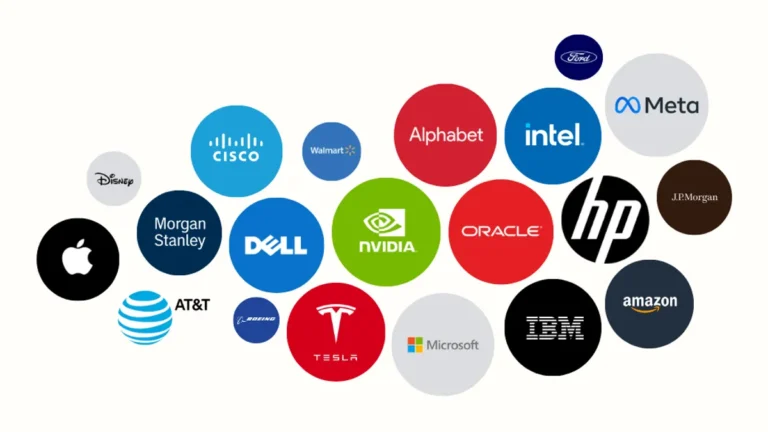
As we journey through 2024, the landscape of artificial intelligence (AI) is evolving at an astonishing rate. While tech giants like Nvidia, Microsoft, and Alphabet continue to dominate the narrative, an intriguing trend is emerging: non-tech companies are stepping into the AI spotlight. Financial institutions, retailers, and entertainment firms are proving that AI is not just the domain of Silicon Valley; it is a vital component of business strategy across all sectors.
AI Leaders Beyond the Tech Sphere
Traditionally, AI has been associated with tech companies, with Oracle and Microsoft often highlighted as leaders in this field. Nvidia stands out not only for its hardware but also for its strategic partnerships and influence in driving AI innovation. Oracle has gained recognition for its commitment to ethical AI, addressing critical issues like bias and data privacy.
However, the rise of non-traditional players is reshaping the AI narrative. Companies like Walmart, Morgan Stanley, and Tesla are showing that AI is essential for enhancing customer experiences and streamlining operations. For example, Walmart has leveraged AI to revolutionize logistics, improve customer service with interactive shopping assistants, and explore innovative delivery options like drones. Yet, these advancements raise important questions about ethics and employee monitoring, especially given reports of Walmart using AI to track employee sentiment on platforms like Slack.
The Importance of Transparency
Engaging transparently with stakeholders regarding AI initiatives has become crucial for building consumer trust. Companies that prioritize open communication, particularly around data protection, often enjoy stronger public sentiment. However, transparency can also attract scrutiny. Major players like Oracle, Microsoft, and Alphabet have faced criticism regarding their data governance practices.
Disney serves as a case study in the risks of transparency. The company faced backlash for excluding shareholder votes on AI usage, highlighting the need to manage employee expectations about AI policies. CEO Bob Iger’s comments about generative AI stoking fears of job losses and reduced creativity underscore the delicate balance companies must strike.
Ethical AI: A Business Imperative
As skepticism toward technology rises, ethical AI practices have become essential for maintaining trust and ensuring long-term success. Companies like Oracle and Intel are leading the charge, focusing on transparency and ethical safeguards. Oracle’s commitment to mitigating bias and protecting data has garnered positive sentiment, driven in part by CEO Chuck Robbins’ signing of the Vatican AI ethics pledge.
In today’s marketplace, effective communication about AI initiatives is key. According to the recently published Storyful AI Index, 70% of ranked companies actively discuss their AI efforts on social media. While this transparency can enhance credibility, it also invites scrutiny—companies must be prepared to address criticism and demonstrate accountability.
The Role of Strategic Partnerships
Collaborative partnerships are crucial for advancing AI innovation. Nvidia’s alliances with HP and IBM, for example, have significantly bolstered their AI profiles, showcasing the “halo effect” of aligning with industry leaders. However, these partnerships come with risks, as seen with Meta’s ongoing privacy challenges.
Conclusion
AI presents incredible opportunities for businesses across all industries, but it also raises important questions about ethics and public trust. Non-tech giants like Walmart and Morgan Stanley are demonstrating that AI can drive growth while proactively addressing transparency and ethical considerations. As the AI landscape continues to evolve, organizations must balance innovation with responsible practices and develop well-defined communication strategies rooted in stakeholder insights.
In this era of rapid change, the redefinition of AI leadership is not solely about technology; it’s about how companies engage with their audiences and uphold ethical standards. Embracing this shift can lead to a more sustainable and trustworthy future for AI in business.









